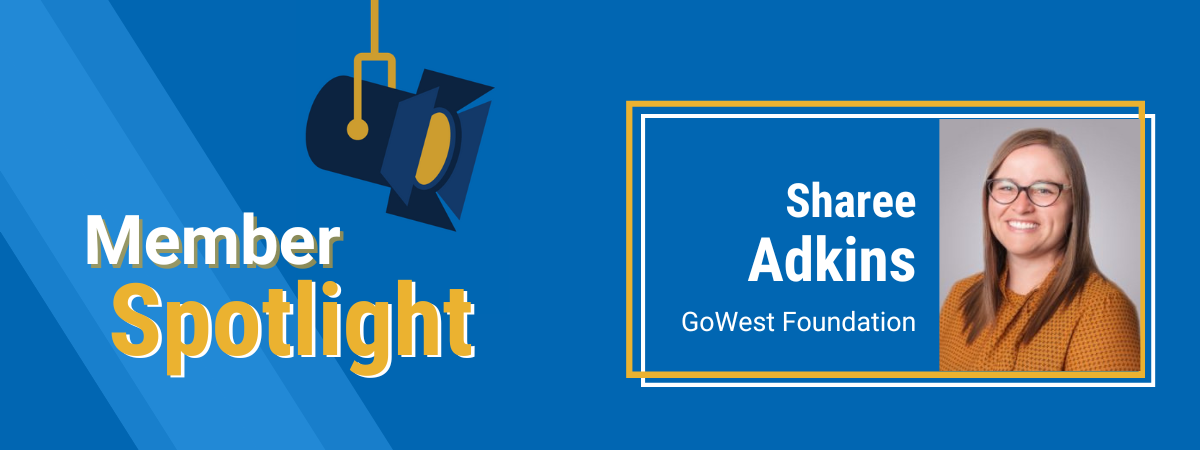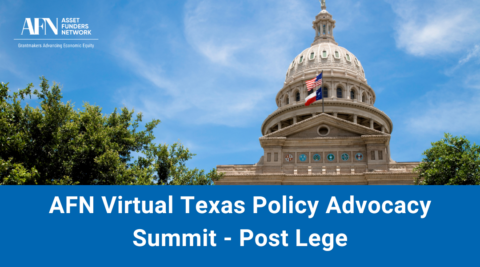 Meet our members! AFN’s greatest asset is our members—a diverse network of national, regional, and community-based foundations, financial institutions, and grantmakers—investing in advancing equitable wealth building and economic mobility. Check back each month and meet your peers!
Meet our members! AFN’s greatest asset is our members—a diverse network of national, regional, and community-based foundations, financial institutions, and grantmakers—investing in advancing equitable wealth building and economic mobility. Check back each month and meet your peers!
1: What is the mission of your organization and how is advancing equitable wealth building and economic mobility incorporated into the work?
Our mission statement is as follows: Powered by a network of credit unions, we are uniquely positioned to harness and deliver resources that strengthen the financial lives of people and communities throughout the region.
Working alongside credit unions to achieve this mission is paramount to our approach. Over the past five years, we have worked to identify and align our initiatives with the issues impacting the communities we operate in. These initiatives have included workforce housing, disaster and pandemic response, and rural access to financial services. Across these initiatives, we put an intentional focus on borrowers who face barriers to accessing credit due to being underserved or considered “high-risk,” and we strive to advance credit unions’ capacity to provide safe and affordable financial products and services to these individuals.
2: What are some of the permanent pivots you have made as a result of the COVID-19 pandemic and the current moment emphasizing the critical need for strategies that provide a range of support to women and Black, Latinx, Indigenous and Asian people and communities?
At the onset of the COVID-19 pandemic, we shifted our programmatic focus and partnered with credit unions to offer a zero-percent-interest small-dollar emergency loan, with an emphasis on providing capital to unserved and underserved borrowers. The development of this program framework brought further structure to how the Foundation partners with credit unions and the tools we leverage to support and increase credit unions’ ability to serve borrowers who may traditionally be denied access to safe and affordable financial products. Through this work, we have seen how assisting credit unions with resources, such as loan loss reserves and funds to offset processing fees and reduce interest rates, helps them reach more individuals and households.
Additionally, before the merger, the Northwest Credit Union Foundation and Northwest Credit Union Association, now the GoWest Credit Union Association, co-facilitated a Diversity, Equity, and Inclusion Task Force comprised of credit union representatives from across Idaho, Oregon, and Washington. Together they identified actionable strategies for credit unions to advance DEI work as employers, financial institutions, and community partners. The strategies encompass recommendations for serving members of all races, religions, genders, sexualities, and ages, as well as historically disadvantaged groups.
s
3: What are some of the most significant gaps that you have identified that could help address economic equity?
The crippling impact of being denied access to capital is a broad issue that can affect nearly all aspects of a person’s life. While it is challenging to identify the most significant gaps, the Foundation recognizes the enormous role that housing plays in financial stability and wealth and the importance of having access to a trustworthy financial institution that puts people at the center of how it operates.
4: Thinking about your previous answer, what do you see as the biggest barriers or challenges for philanthropy to address these gaps?
The challenge is that the gaps in economic equity are not limited to one problem that requires one solution. These issues are layered and affect all aspects of a community — individuals, families, seniors, businesses, schools, nonprofits, local government, and so on. The most significant impact will come from collaborative efforts that bring together the resources and strengths of philanthropy, local businesses and organizations, and community members.
5: What have been some of the biggest benefits of being part of the Asset Funders Network?
We have appreciated the Asset Funders Network’s thought leadership on so many topics that relate to our Foundation’s priorities. The webinars, white papers, and resources have been immensely helpful.
6: What is the last book you read?
The last book I read was Heartland by Sarah Smarsh.
About Sharee Adkins, Executive Director, GoWest Foundation
The GoWest Foundation, formerly Northwest Credit Union Foundation, merged with the Mountain West Credit Union Foundation and now operates across Idaho, Oregon, Washington, Arizona, Colorado, and Wyoming. With a focus on strengthening the financial lives of people and communities in the region, we work in partnership with the network of credit unions in these states to maximize community impact and advance the financial well-being of those they serve.
In my role, I work to build connections between credit unions and the philanthropic and community ecosystems that exist across our six-state region. Credit unions are not-for-profit and driven by what is best for their members. Our Foundation is successful when we are able to infuse a relatively small amount of philanthropic support to efforts that bring safe and affordable access to capital to folks who are often left out of the traditional financial services systems.


